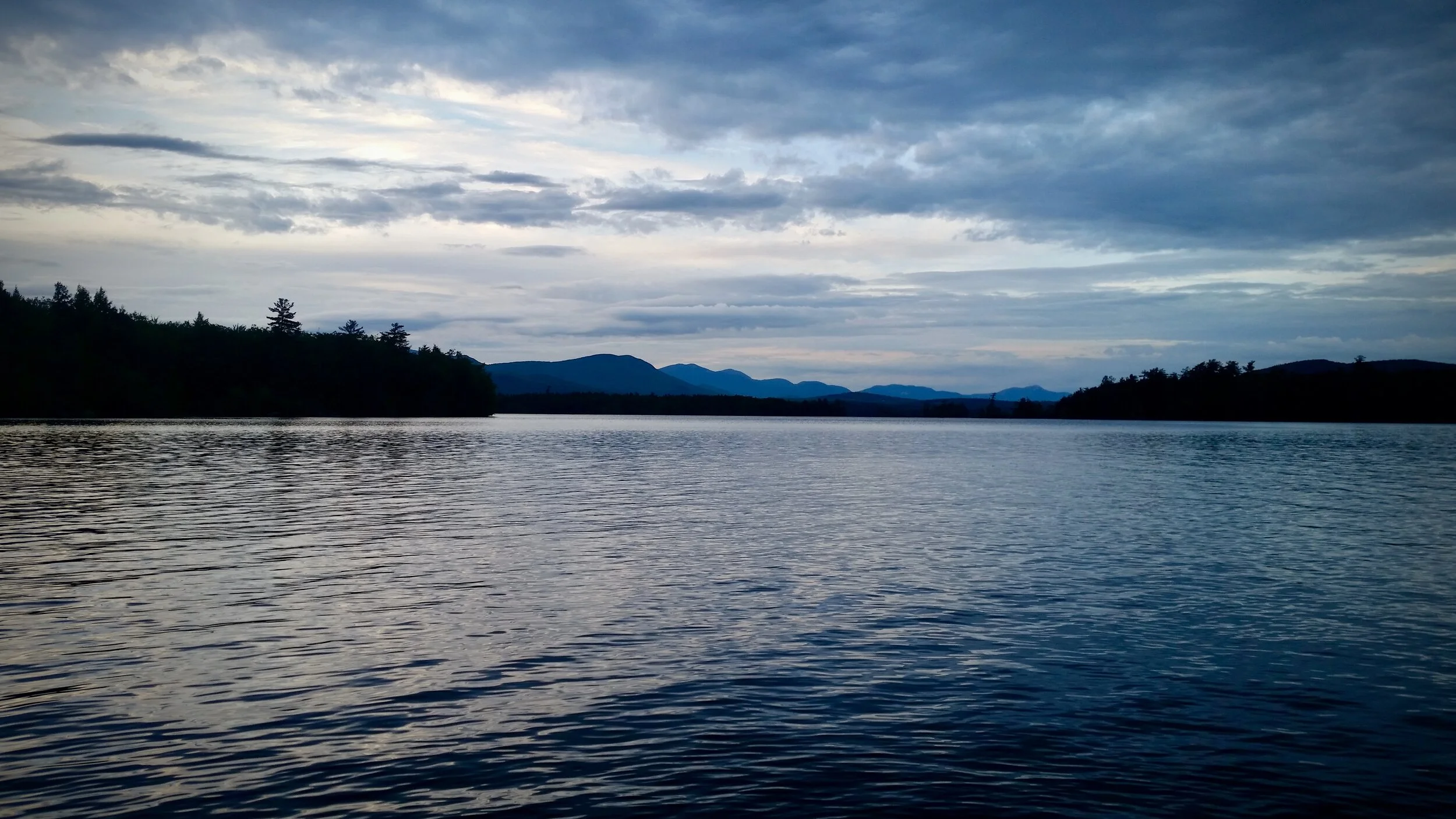Emily Dickinson once said, “I know nothing in the world that has as much power as a word. Sometimes I write one, and I look at it, until it begins to shine.”
I love to journey through the roadmap of a word’s etymology. I love to take the heavy- laden letters, dusted in timeworn layers, dripping with meaning and history, wipe them off and wring them dry until left with the origin. It’s at the origin one can often find the true perception of the thing a word describes. So, naturally, coming to Squam Lake for the first time, I wanted to understand how it got its name in the first place. The original inhabitants, the Abenaki, once called the lake Keeseenunknipee, or “The Goose Lake in the High Lands”. Squam shoreline provides nesting ground for a wide range of avian life, but it is speculated that the goose they were referring to was the beloved loon. Spend a night near Squam and you can hear the meaning behind the name. You can hear the meaning in the beautifully haunting loon calls, whose somber notes soar across the still surface of the waters and envelop the shoreline in elegiac echoes. You can see the name in the dips and ridges of the purple mountains on the horizon that fade into the sky like a morning mist.
“‘I know nothing in the world that has as much power as a word. Sometimes I write one, and I look at it, until it begins to shine’ - Emily Dickinson”
[Loon: thought to come from the Old Norse word lómr which some feel imitates the loon’s mournful call, but others believe means “lame” referring to the awkward way diving birds walk on land.]
White settlers shortened the name over the years for convenience to “Ksumpy” and “Casumpa” and eventually it was renamed altogether to another Abenaki name, Asquam, meaning water. Water is a seemingly rudimentary molecule that exhibits some of the most incredible properties. Water is a polar molecule because it has a partial positive charge on one end and partial negative charge on the other, making it very “sticky” or attracted to other water molecules, a property known as cohesion. Sometimes water molecules are more attracted to other types of molecules, a property called adhesion. Because of their polar nature, water can also interact with other polar molecules, pulling and dispersing them evenly throughout the water body, or what we know as dissolving. This is why water is considered a universal solvent.
[Solvent: means “able to pay all one owes” in French, comes from the Latin word solver meaning “to loosen, release, accomplish”.]
Being something that easily takes on its surroundings is important, but it also makes it vulnerable to taking on too much or things that are harmful. Unlike us, water cannot have someone looking out for it and making sure it takes the breaks it needs, it just keeps taking in the chemicals, minerals, and nutrients that come by. Before coming to Squam I was used to the lake in my hometown, whose murky depths tickle you with swaying ropes of overgrown aquatic plants and obscure the view so much you can’t see your own feet. The road salts used near the lake in the winter seep into the water, which takes on too much chlorine and phosphorus. In the summers, algae hungrily use the high supply of these nutrients and bloom across the water’s surface. The town usually shuts down the lake because the algae are harmful and irritating to us. In a way we pay our dues to the water we misuse because nature itself is solvent, it will always make up its debts in some way or another.
It becomes clear when you swim in Squam Lake why the region is named after the water itself. There’s a palpable love here for the lakes and the wildlife around them, a care that has been taken on by the water, purifying it to its crystalline depths. As I write this journal the rain pours down outside, the sky drops all the water it gathered and wipes its damp brow clear of the stifling humidity. The droplets will run down into the lakes, like a grain of sand on a shore, and they will add to Squam. They will become the beaches that we swim in, the surfaces on which we sail and fish. I can see myself in the droplets of water that gather and pool into the lakes. I’ve only just come here, but already I feel myself drawn to the lakes and attached to the water. I already feel, in my boating and kayaking trips and late afternoon dips, like Squam is a part of me and me it.
Sam is a Half Term LRCC member serving at the Squam Lakes Association. Ask her about her current pursuit of a Master’s Degree in Biodiversity and Conservation Biology at UConn! You can learn more about Sam here.


